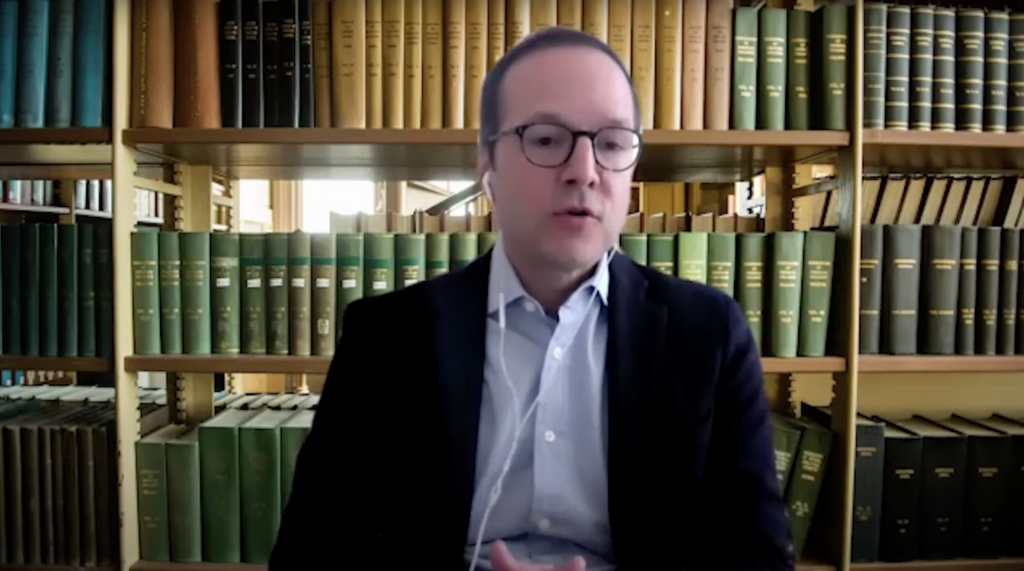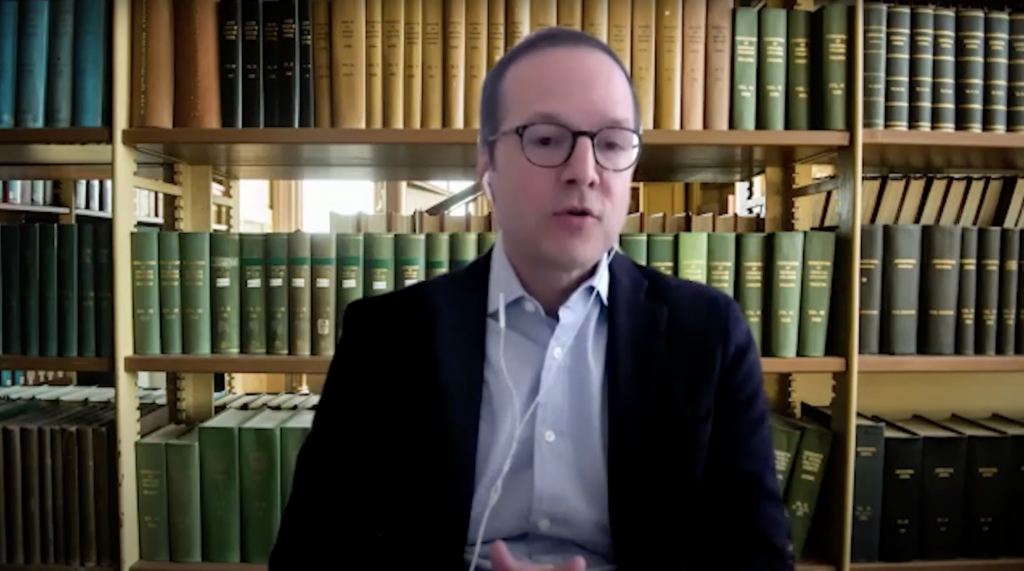China-Russia relations face unprecedented challenges amid Russia’s invasion of Ukraine, according to panelists at a March 28 event.
The event, titled “China-Russia Relations: Peers, Allies, Competitors?”, featured a conversation aimed at unpacking the dynamism, opportunities and irritants in Sino-Russian ties.
Georgetown University’s Initiative for U.S.-China Dialogue on Global Issues and the Asian studies program in the School of Foreign Service (SFS) co-sponsored the dialogue. Evan Medeiros, Penner Family Chair in Asian studies and senior fellow with the Initiative for U.S.-China Dialogue on Global Issues, moderated the event.

Since Russia launched an unprovoked invasion of Ukraine on Feb. 24, the Chinese government has emphasized the two countries’ partnership. As recently as March 28, Russian Foreign Minister Sergei Lavrov affirmed that China-Russia relations continue to be particularly strong.
Declarations of support from the Chinese and Russian governments are rooted in ideological similarities that the two countries have shared since the Cold War, as their governments were both fundamentally opposed to Western values of democracy and capitalism, according to Joseph Torigian, an American University professor and Wilson Center fellow.
“They see an attack on traditional values in the West as something dangerous,” Torigian said at the event. “Whereas Russia and China, by protecting those values, can avoid how these democratic countries fall into what they see as a destabilizing situation. They both want to restore their past.”
Russia and China declared a “no limits” partnership Feb. 4, promising to collaborate against the West and work together on space, climate change, artificial intelligence and control of the internet.
The document’s ambiguous language underscores the countries’ different economic positions, which leaves room for the Chinese government to withhold support for the Russian invasion, according to Elizabeth Wishnick, senior research scientist in the China and Indo-Pacific Security Affairs Division at CNA.
“It’s a normative alignment. I think they agree in terms of certain broad brushstrokes of what they would like to see, but they have different positions in the global economy. They have different desires in terms of their foreign policy aims,” Wishnick said at the event.
According to Torigian, international economic and political pressures may force China to ultimately align with the West more than Russia.
“There’s the added element of the years leading up to the Ukraine crisis, during which I think the Chinese did hope for a better relationship with the West,” Torigian said. “Since that didn’t happen, as they’re calculating their interest with regards to how much to support the Russians, and they think about what might be possible, now that the United States is prioritizing the war in Ukraine so much, they may not feel that the need to work with the Russians is costing them so much as to with regards to the west.”
However, despite the fact that China is facing backlash for supporting Russia, the China-Russia partnership ultimately benefits China’s position in the international order, according to Wishnick.
“There’ve been a lot of questions, you know, is this partnership, it might be unlimited, but is it an unlimited burden for China right now, because of additional costs that China is experiencing for being the strategic partner of Russia?” Wishnick said. “China still sees that as an asset. There’s some stability in this partnership, despite the huge pressures the Ukraine war has caused.”
People should pay attention to China and Russia’s actions, especially in the context of the conflict in Ukraine, according to Yu Bin, professor emeritus at Wittenberg University and senior fellow of the Shanghai Association of American Studies and the Russian Studies Center of the East China Normal University in Shanghai.
“The narrative versus interest — this is the very important issue, and how much the Chinese would continue the normal commercial interaction with Russia, and to what extent, for example, the Chinese would go for any military assistance,” Bin said. “My own sense of the issue is, I think the normal, ongoing commercial interactions will continue, though the Chinese firms have been more careful not to step beyond the U.S. red line. And that’s that.”





















